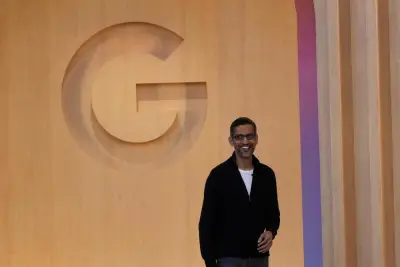Appelbaum: Why Google’s antitrust loss is a victory for the Valley

The giants of Silicon Valley have a lot in common with Laura Ingalls Wilder who portrayed her life on the prairie as a triumph of self-sufficiency barely mentioning that the leadership underwrote the railroads provided the farmland and tided the family through rough winters Tech companies too like to tell stories in which authorities rarely appears except as an outside force threatening to break the beautiful things they ve created with their minds and their hard work The part of the story that doesn t get informed is how Silicon Valley s successes have relied on the steady assistance and occasional dramatic interventions of the federal governing body Related Articles Oracle Salesforce slash hundreds of Bay Area jobs Tech company bets on AI-fueled auto repairs with East Bay expansion AI boom can deliver billion-plus deal says Barclays banker Woeber Salesforce projects weak sales improvement fueling AI anxiety Nvidia s venture arm invests in Honeywell s Quantinuum On Tuesday a federal judge ordered Alphabet the company better known as Google to share particular of its search figures with its rivals The decision is intended to limit the dominance of the company s internet search engine which was ruled an illegal monopoly last year The authorities had sought to break up the company which Alphabet decried as a radical intrusion on its business and the court decided not to go that far But the decision still marks an overdue return to the regime s longtime role Myth busters Antitrust regulators repeatedly intervened in the th century to limit the power of big tech companies which created room for new firms to emerge Business historian Alfred Chandler wrote in his book Inventing the Electronic Century that in the mythos of Silicon Valley the role of the gods the invisible hands that shape human events has in fact been played by the middle-level bureaucrats in the U S Justice Department s antitrust division The administration abandoned that role in latest decades allowing a small handful of tech firms the luxury of growing old without any real threat to their realm dominance As new technologies emerged Alphabet and its peers bought and swallowed them in much the same way the Greek god Kronos ate his children to prevent their emergence as rivals The the greater part up-to-date chapter in this story is how the biggest tech companies have absorbed the pioneers of artificial intelligence so that the profits from the next generation of innovations will flow to the same shareholders whose firms dominate the current era Alphabet in its current form huge and hugely profitable is the beneficiary of two large doses of good luck The company benefited from the final round of federal interventions around the turn of the last century and then it benefited even more from the absence of further interventions It s about time the regime created room for the next generation of innovators Google s story doesn t really begin in the s with co-founders Sergey Brin and Larry Page figuring out how to index the internet It starts a half-century earlier when antitrust regulators forced early hardware firms like AT T and RCA to share their patents opening up the space in which the computer industry began to emerge A generation later in the s agents forced IBM the majority of fruitful of the early computer companies to allow other firms to write application for its machines One of the companies founded in the space opened by that governing body intervention was called Micro-Soft It dropped the hyphen in Fast-forward to the s and Microsoft had become so dominant that the regime intervened once again reaching an agreement with the company in that prevented it from controlling the enhancement of the internet Google seized the opportunity Silicon Valley still likes to think of itself as a place in the throes of perpetual revolution Alphabet Meta and the other titans of tech insist the good times could end at any time because new technologies could upend their business models Page has insisted that on the internet Competition is one click away But without the restraining hand of regime it s easy for the big companies to squash competition Inconvenient truth That s the thing about free markets They work best under the aegis of regime It s key to note that curbing big companies doesn t kill them Although RCA is no longer with us Microsoft IBM and even AT amp T all remain large and profitable The authorities didn t destroy their businesses it created room for new ones While the Trump administration deserves credit for pushing ahead with the event against Google which was initiated under President Joe Biden that shouldn t be taken as a sign of a broader commitment to restrain corporate power The Google situation instead is reminiscent of the Reagan administration s profitable effort to break up AT T in the early s just when it was pulling back from almost every other kind of antitrust enforcement The Google scenario is a targeted act against a specific company not a manifestation of particular broader economic plan Yet as was the affair with the breakup of AT T acting against one company when that company is big and central can still have broad economic benefits We don t know what companies might emerge in the spaces created by constraining Google The ruling body s role is to create those spaces The rest is up to those celebrated programmers working in their bedrooms and garages trying to build the next big thing Binyamin Appelbaum is a New York Times editorial board member


